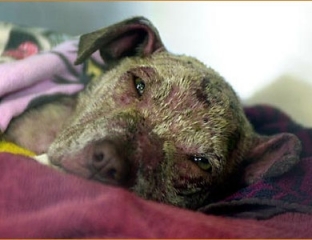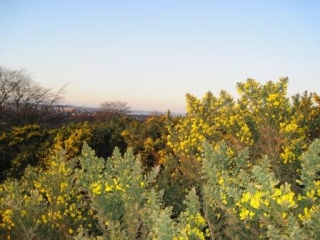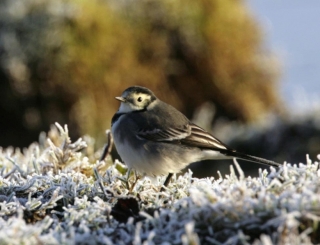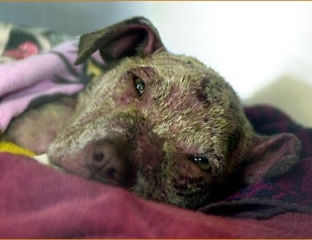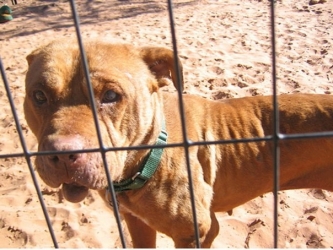By Suzanne Kelly.
Crime involving animals of all kinds, domestic, farm and wild, is on the increase throughout the UK. There are a wide range of illegal, violent acts taking place up and down the country. But there are things we can do to help stem the tide.
The details are upsetting. Horses have been attacked in Cornwall recently, and wildlife crime has been reported in the Scottish Borders.
A golden eagle was killed recently in our own area. It probably suffered for days in an illegal trap.
Conviction is almost always a difficult business. Thankfully, in Aberdeenshire, the successful prosecution of the Reid Brothers led to the exposure and end of a violent, vicious dog-fighting ring. These people tortured the unfortunate animals, and for their pleasure filmed the dogfights.
Money is the main motivator. Bets on dogs, though highly illegal, are still making money for those involved. The dogs are treated inhumanely from birth, usually born to a mother who is kept perpetually pregnant then simply disposed of when worn out.
Even worse, the enjoyment of cruelty is why some people get involved in this crime.
Here is a link to the September 2011 STV story on the Reid Brothers’ conviction. It is distressing.
http://news.stv.tv/north/271235-two-barbaric-brothers-jailed-for-dog-fighting/
But it is also an encouraging story. The Courts took this case very seriously and imposed custodial sentences on the Reids, who had 6 dogs being trained for fighting. The ring was exposed, the dogs which the Reids had were rescued, and awareness was raised.
The Scottish SPCA’s undercover work helped bring about this conviction. It believes that there are others in our area involved in dog-fighting, and that it is still going on. There are reports that fighting might be taking place in Torry and Kincorth.
How to help
If a dog fight is about to take place or is going on: it is very rare that the authorities get a lead like this, but it happens. Call the police emergency number – 999, or call the Scottish SPCA hotline – 0800 999 4000.
John Robins of the Animal Concern Advice Line said;
“People involved in dog fighting can be extremely dangerous. Dog fighting is a very serious crime and anyone who stumbles across a dog fight or has possible evidence of dog fighting should not try to intervene but immediately dial 999 and alert the police.”
If you know anything about dog fighting: please get in touch anonymously with the police, the Scottish SPCA, and/or Crimestoppers. You can help save innocent animals from torture. Dogs do not naturally wish to fight each other, and if you knew the barbaric things done to these animals to make them into fighters, you would want it ended.
Many people involved in acts of animal cruelty have gone on to harm people when the thrill from animal cruelty is no longer enough. This interest in hurting animals escalating to violence against people is not uncommon in killers and serial killers.
If you have seen any animals mistreated: please get in touch with the authorities as above, anonymously if you wish. The people who can help need as much information as they can get.
If you have any suspicions. Dogs that have obvious signs of injuries, either bodily or facial may be involved in dog fighting. If you have any suspicions it is important that you bring them to the Scottish SPCA’s attention. Either they can rule out cruelty and dog fighting, or they can start to build a pattern, and hopefully rescue animals from further cruelty.
There will be a leafleting campaign taking place shortly in the south of the city. If you wish to get involved, get in touch.
Anyone who is not comfortable calling the Scottish SPCA, the police, or Crimestoppers can send an email , for non-urgent matters such as suspected dog fighting, to stop.dogfights@yahoo.co.uk. You can also write to that email address to go on an anonymous mailing list. No one else will get your details.
PS: it is also Staffie Awareness Week. Staffordshire terriers are lovely animals, and deserve the same treatment and kindness as any other dog breed.
Contacts.
Scottish Society for the Prevention of Cruelty to Animals
Hotline 0800 999 4000; website http://www.scottishspca.org/
Animal Concern Advice Line (ACAL)
John F. Robins, Secretary, c/o Animal Concern,
Post Office Box 5178, Dumbarton G82 5YJ.
Tel 01389-841111.,
Mobile: 07721-605521. Fax: 0870-7060327.
Website http://adviceaboutanimals.info
Grampian Police
Emergencies: 999. Non-emergency number: 0845 600 5700.
Crimestoppers
Tel. 0800 555 111
Email for any leads
stop.dogfights@yahoo.co.uk
Comments enabled – see comments box below. Note, all comments will be moderated.
